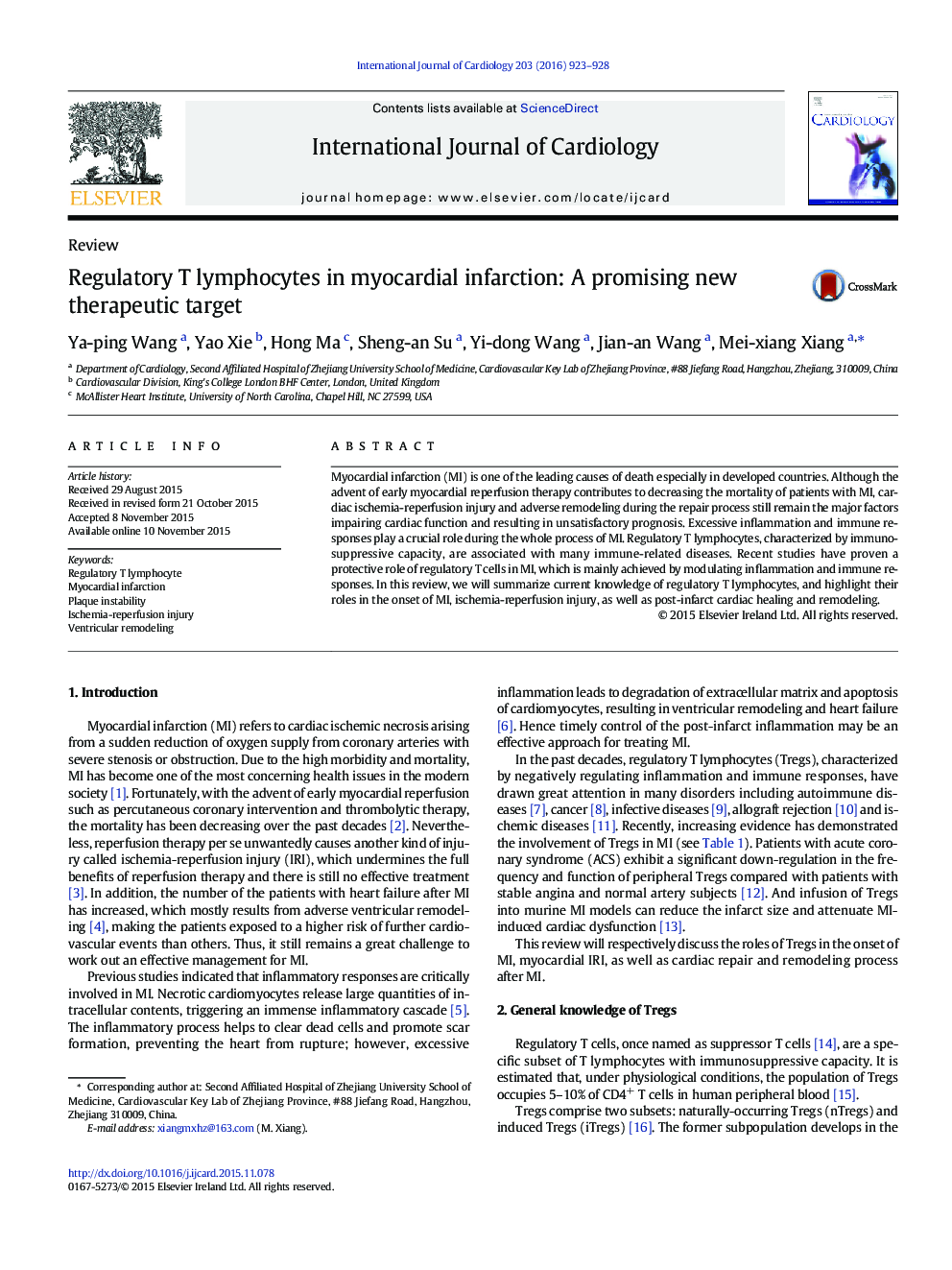| Article ID | Journal | Published Year | Pages | File Type |
|---|---|---|---|---|
| 5965544 | International Journal of Cardiology | 2016 | 6 Pages |
â¢Inflammation and immune responses are crucially involved in the pathogenesis of MI.â¢Tregs are characterized by negatively regulating inflammation and immune responses.â¢Tregs are proved to play a protective role in all stages of MI.â¢Tregs may represent a promising new therapeutic target for treating and preventing MI.â¢Further researches are needed before clinical application.
Myocardial infarction (MI) is one of the leading causes of death especially in developed countries. Although the advent of early myocardial reperfusion therapy contributes to decreasing the mortality of patients with MI, cardiac ischemia-reperfusion injury and adverse remodeling during the repair process still remain the major factors impairing cardiac function and resulting in unsatisfactory prognosis. Excessive inflammation and immune responses play a crucial role during the whole process of MI. Regulatory T lymphocytes, characterized by immunosuppressive capacity, are associated with many immune-related diseases. Recent studies have proven a protective role of regulatory T cells in MI, which is mainly achieved by modulating inflammation and immune responses. In this review, we will summarize current knowledge of regulatory T lymphocytes, and highlight their roles in the onset of MI, ischemia-reperfusion injury, as well as post-infarct cardiac healing and remodeling.
